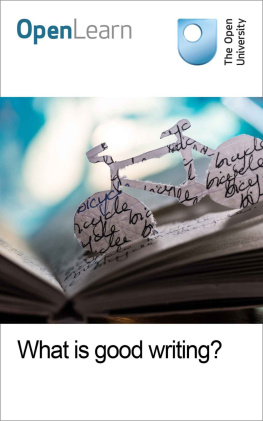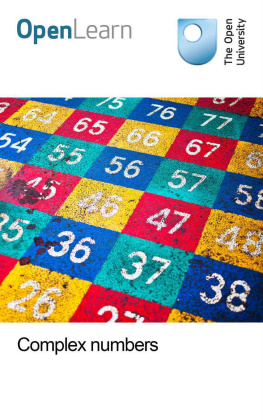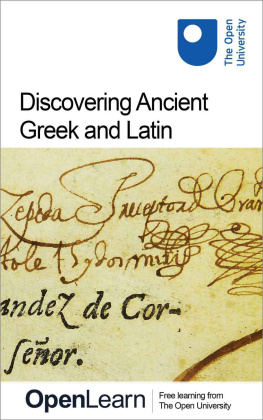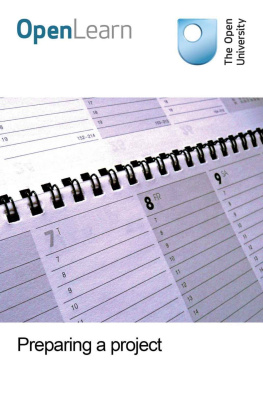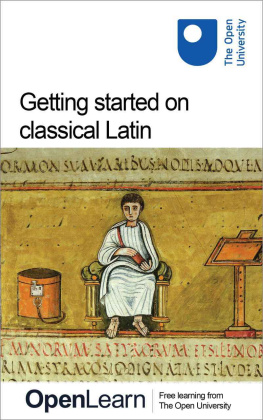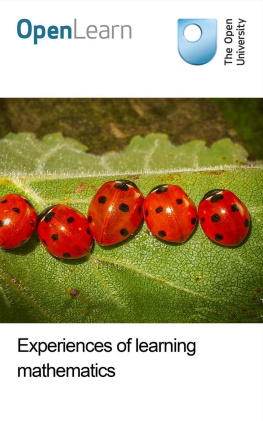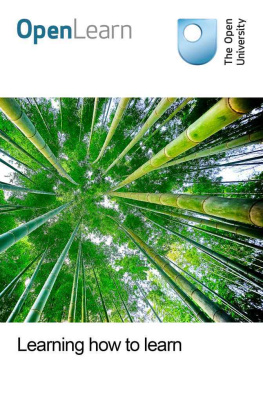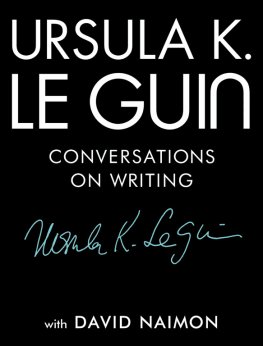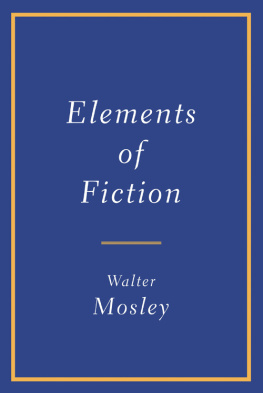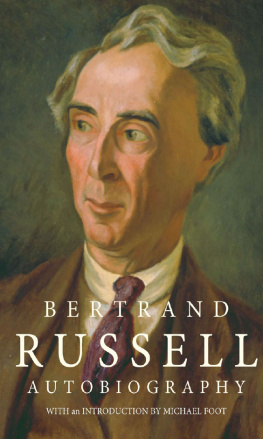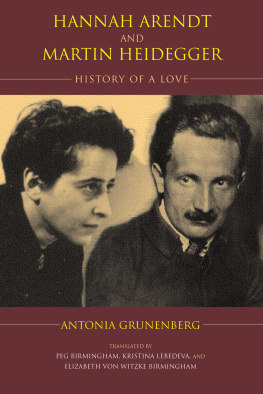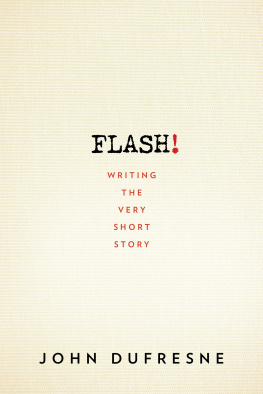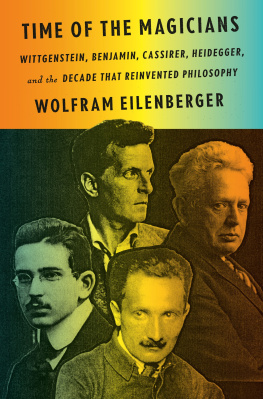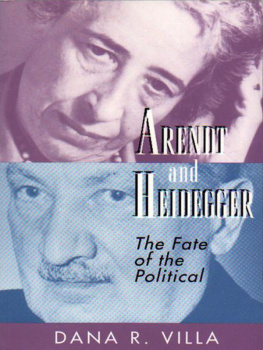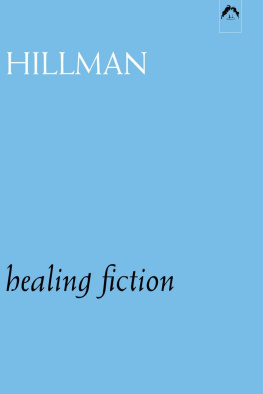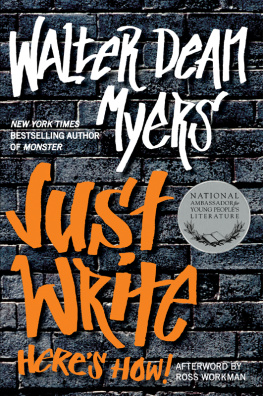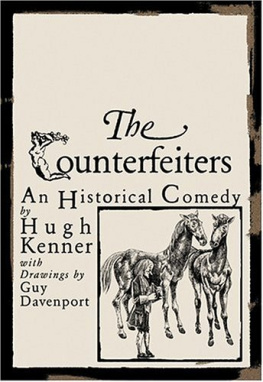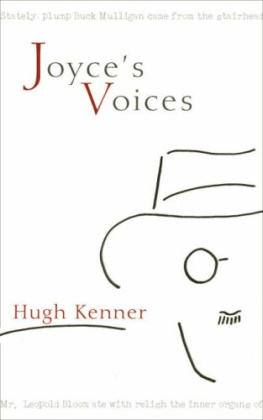GSG_1
What is good writing?
About this free course
This free course is an adapted extract from the Open University course Q86 English Literature and Creative Writing: www.open.ac.uk/courses/qualifications/q86.
This version of the content may include video, images and interactive content that may not be optimised for your device.
You can experience this free course as it was originally designed on OpenLearn, the home of free learning from The Open University www.open.edu/openlearn/history-the-arts/culture/literature-and-creative-writing/what-good-writing/content-section-0
There youll also be able to track your progress via your activity record, which you can use to demonstrate your learning.
The Open University Walton Hall, Milton Keynes MK7 6AA
Copyright 2016 The Open University
Intellectual property
Unless otherwise stated, this resource is released under the terms of the Creative Commons Licence v4.0 http://creativecommons.org/licenses/by-nc-sa/4.0/deed.en_GB. Within that The Open University interprets this licence in the following way: www.open.edu/openlearn/about-openlearn/frequently-asked-questions-on-openlearn. Copyright and rights falling outside the terms of the Creative Commons Licence are retained or controlled by The Open University. Please read the full text before using any of the content.
We believe the primary barrier to accessing high-quality educational experiences is cost, which is why we aim to publish as much free content as possible under an open licence. If it proves difficult to release content under our preferred Creative Commons licence (e.g. because we cant afford or gain the clearances or find suitable alternatives), we will still release the materials for free under a personal end-user licence.
This is because the learning experience will always be the same high quality offering and that should always be seen as positive even if at times the licensing is different to Creative Commons.
When using the content you must attribute us (The Open University) (the OU) and any identified author in accordance with the terms of the Creative Commons Licence.
The Acknowledgements section is used to list, amongst other things, third party (Proprietary), licensed content which is not subject to Creative Commons licensing. Proprietary content must be used (retained) intact and in context to the content at all times.
The Acknowledgements section is also used to bring to your attention any other Special Restrictions which may apply to the content. For example there may be times when the Creative Commons Non-Commercial Sharealike licence does not apply to any of the content even if owned by us (The Open University). In these instances, unless stated otherwise, the content may be used for personal and non-commercial use.
We have also identified as Proprietary other material included in the content which is not subject to Creative Commons Licence. These are OU logos, trading names and may extend to certain photographic and video images and sound recordings and any other material as may be brought to your attention.
Unauthorised use of any of the content may constitute a breach of the terms and conditions and/or intellectual property laws.
We reserve the right to alter, amend or bring to an end any terms and conditions provided here without notice.
All rights falling outside the terms of the Creative Commons licence are retained or controlled by The Open University.
Head of Intellectual Property, The Open University
The Open University
Staples Printers Rochester Limited, Neptune Close, Medway City Estate, Frindsbury, Rochester, Kent M2 4LT
978 1 47300 046 9 (.kdl)
978 1 47300 141 1 (.epub)
Contents
Introduction
When you write down an account of your ideas for other people to read, you have to explain yourself particularly carefully. You cannot make the mental leaps you do when you talk with others or think about things by yourself. This makes writing probably the most challenging aspect of studying. This course will help you to develop the basic skills and confidence required for writing by explaining what is involved in good writing and why it is so important.
This OpenLearn course is an adapted extract from the Open University course Q86 English Literature and Creative Writing.
Learning outcomes
After studying this course, you should be able to:
- discuss why writing is so important
- understand and use critically the main criteria of good essay-writing
- be aware of the basic technical and stylistic considerations involved in writing.
1 The importance of writing
1.1 Why write?
Of all aspects of studying, writing is probably the most challenging. That is because when you write down an account of your ideas for other people to read you have to explain yourself particularly carefully. You can't make the mental leaps you do when you are in conversation with others or thinking about something for yourself. To make your meaning clear, using only words on a page, you have to work out exactly what you think about the subject. You come to understand it for yourself in the process of explaining it to others. So writing makes you really grapple with what you are studying. In other words, it forces you into a very deep and powerful kind of learning. That is what makes it so demanding. When you write you are really putting ideas to use.
In writing you have done previously you may have taken in ideas from books, articles, TV and so on. But it is only when you can use these ideas to say something for yourself that you have really learned them. Ideas only become a properly functioning part of your thought-processes when you can call on them as you communicate with other people. It is very valuable to debate issues with other students in discussion groups. But an even more exacting way of using ideas in argument is to do it in writing.
A key part of using ideas effectively is to be able to write clearly and persuasively. In our society this is a very valuable skill. It puts you on a much better footing with other people if you can present your point of view forcefully in writing. Perhaps you started out on your studies with the idea only of learning more about art, music or history, but you may discover that one of the most valuable things you gain is the ability to write much more effectively. Whether you start with a rather weak writing style or a fairly well-developed one, there is always plenty of progress to be made.
So writing tends to be both the most demanding and the most rewarding part of any course of study. And, because it contributes so much to what you learn, you have to put a lot of your time and energy into it.
1.2 What is an essay?
The different arts and humanities subjects make their own particular demands on you. You may have to do various kinds of writing diaries, logs, project reports, case-studies or even write creatively. In this chapter, though, we are going to concentrate on the essay because that is by far the most common form of writing in arts and humanities subjects.
The word essay originally meant an attempt or try at something, but now it usually means a short piece of writing on a specific subject. It is a complete piece of writing that can stand alone it must make sense to the reader in itself. You are given an essay title or question, which sets out the isues you need to address, and a word limit of around one or two thousand words possibly a bit shorter to begin with. You work from the title, putting together an

